Modeling community integration in workers with delayed recovery from mild traumatic brain injury
- PMID: 26452471
- PMCID: PMC4600293
- DOI: 10.1186/s12883-015-0432-z
Modeling community integration in workers with delayed recovery from mild traumatic brain injury
Abstract
Background: Delayed recovery in persons after mild traumatic brain injury (mTBI) is poorly understood. Community integration (CI) is endorsed by persons with neurological disorders as an important outcome. We aimed to describe CI and its associated factors in insured Ontario workers with delayed recovery following mTBI.
Methods: A cross-sectional study of insured workers in the chronic phase following mTBI was performed at a rehabilitation hospital in Ontario, Canada. Sociodemographic, occupational, injury-related, clinical, and claim-related data were collected from self-reports, medical assessments, and insurers' referral files. Community Integration Questionnaire (CIQ) scores were compared using analysis of variance or Spearman's correlation tests. Stepwise multivariable linear regression models were used to evaluate the associations with CI.
Results: Ninety-four workers with mTBI (45.2 ± 9.9 years old, 61.2% male) at 197 days post-injury (interquartile range, 139-416 days) were included. The CIQ total and subscale scores were similar to those reported in more severe TBI samples. The CIQ scores were moderately to strongly correlated with various sociodemographic, claim-related, and clinical variables. In the multivariable regression analysis, several covariates accounted for 36.4% of the CIQ variance in the final fully adjusted model.
Discussion: This study evaluated CI in workers with mTBI, and analyzed its associated variables. Analysis revealed insomnia, head or neck pain, being married or in a relationship, time since injury, and a diagnosis of possible/probable malingering were independently associated with limited CI.
Conclusions: Workers with delayed recovery from mTBI experience difficulty with CI. Insomnia is a particularly relevant covariate, explaining the greater part of its variance. To enhance participation, care should focus on clinical and non-clinical covariates.
Figures
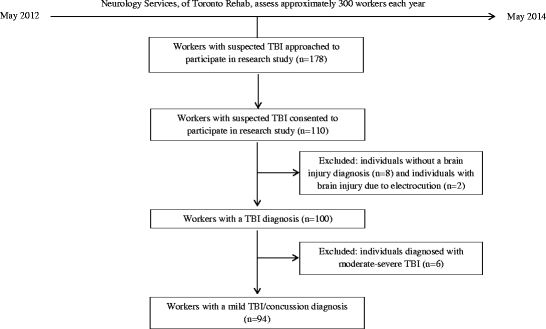
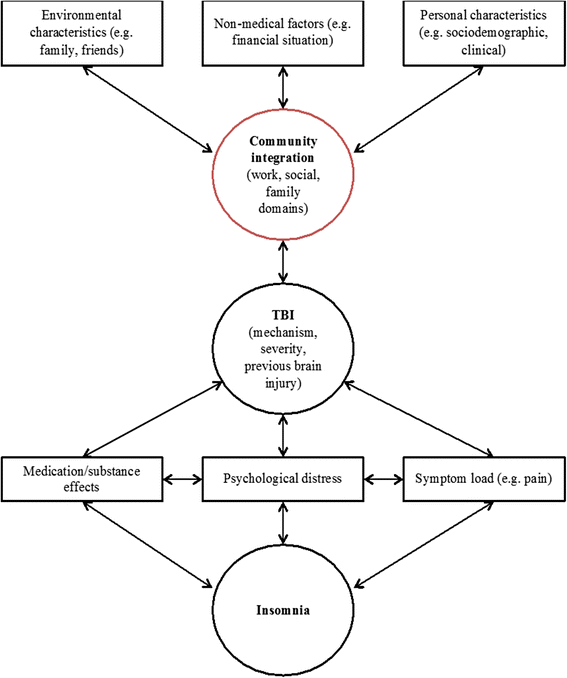
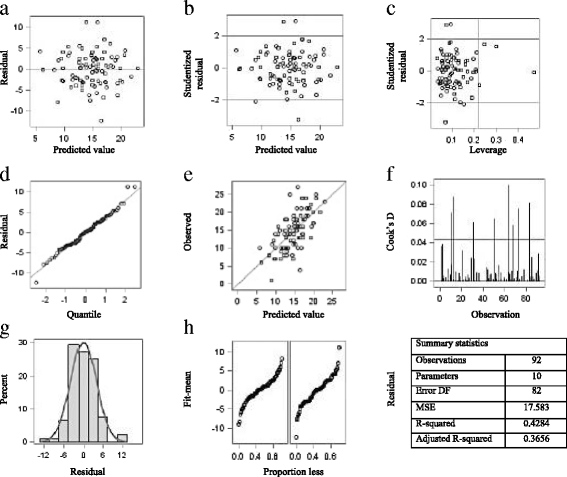
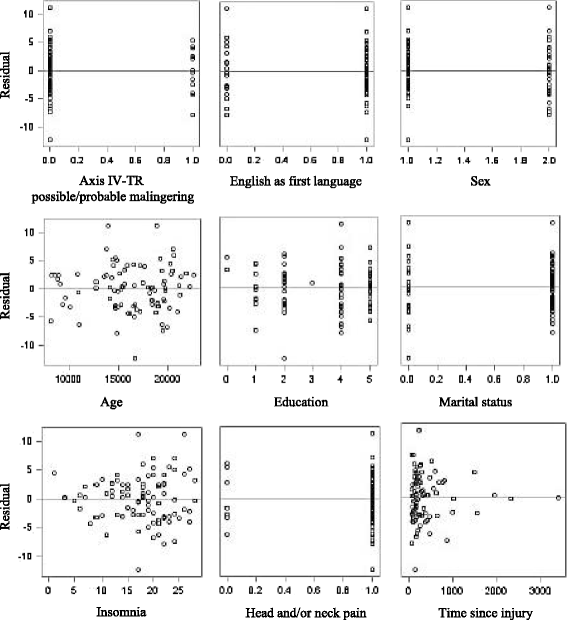
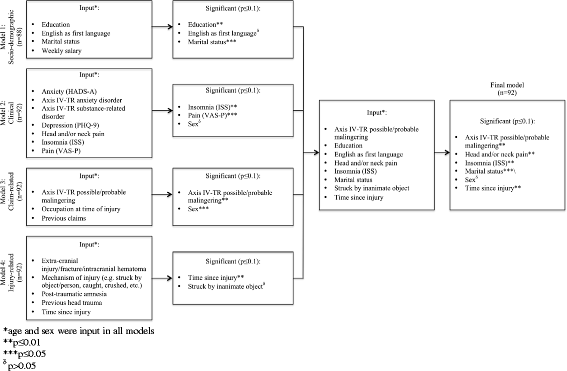
Similar articles
-
Insomnia in workers with delayed recovery from mild traumatic brain injury.Sleep Med. 2016 Mar;19:153-61. doi: 10.1016/j.sleep.2015.05.014. Epub 2015 Jul 10. Sleep Med. 2016. PMID: 26358896
-
The relationship between insomnia and disability in workers with mild traumatic brain injury/concussion: Insomnia and disability in chronic mild traumatic brain injury.Sleep Med. 2016 Apr;20:157-66. doi: 10.1016/j.sleep.2015.09.008. Epub 2015 Oct 23. Sleep Med. 2016. PMID: 26790723
-
Association of Chronic Pain and Community Integration of Returning Veterans With and Without Traumatic Brain Injury.J Head Trauma Rehabil. 2016 Jan-Feb;31(1):E1-12. doi: 10.1097/HTR.0000000000000152. J Head Trauma Rehabil. 2016. PMID: 26098259
-
Mild traumatic brain injury in the occupational setting.PM R. 2011 Oct;3(10 Suppl 2):S387-95. doi: 10.1016/j.pmrj.2011.08.007. PM R. 2011. PMID: 22035681 Review.
-
Post-traumatic stress, depression, and community integration a long time after whiplash injury.Ment Illn. 2010 Apr 14;2(1):e4. doi: 10.4081/mi.2010.e4. eCollection 2010 Jan 25. Ment Illn. 2010. PMID: 25478087 Free PMC article. Review.
Cited by
-
The relationship between social participation and quality of life in individuals with traumatic brain injury.Fujita Med J. 2025 Aug;11(3):111-120. doi: 10.20407/fmj.2024-016. Epub 2025 Apr 17. Fujita Med J. 2025. PMID: 40777147 Free PMC article.
-
Systematic Review of Sex and Gender Effects in Traumatic Brain Injury: Equity in Clinical and Functional Outcomes.Front Neurol. 2021 Sep 10;12:678971. doi: 10.3389/fneur.2021.678971. eCollection 2021. Front Neurol. 2021. PMID: 34566834 Free PMC article.
-
Crosscultural Validation of the Community Integration Questionnaire-Revised in an Italian Population.Occup Ther Int. 2020 Aug 28;2020:8916541. doi: 10.1155/2020/8916541. eCollection 2020. Occup Ther Int. 2020. PMID: 32934614 Free PMC article.
-
Sex & gender considerations in concussion research.Concussion. 2018 Jan 18;3(1):CNC51. doi: 10.2217/cnc-2017-0015. eCollection 2018 Mar. Concussion. 2018. PMID: 30202593 Free PMC article. Review.
-
Community Integration After Traumatic Brain Injury and Related Factors: A Study in the Nepalese Context.SAGE Open Nurs. 2020 Dec 21;6:2377960820981788. doi: 10.1177/2377960820981788. eCollection 2020 Jan-Dec. SAGE Open Nurs. 2020. PMID: 33912666 Free PMC article.
References
-
- World Health Organization . Traumatic brain injury: neurological disorders. Public health challenges. Geneva: WHO Press; 2006.
-
- Hyder A, Wunderlich C, Puvanachandra P, Gururaj G, Kobusingye O. The impact of traumatic brain injuries: a global perspective. NeuroRehabilitation. 2007;22:341–53. - PubMed
-
- World Health Organization . Projection of Mortality and Burden of Disease to 2030. Death by Income Group. Geneva: WHO Press; 2002.
Publication types
MeSH terms
Grants and funding
LinkOut - more resources
Full Text Sources
Other Literature Sources

